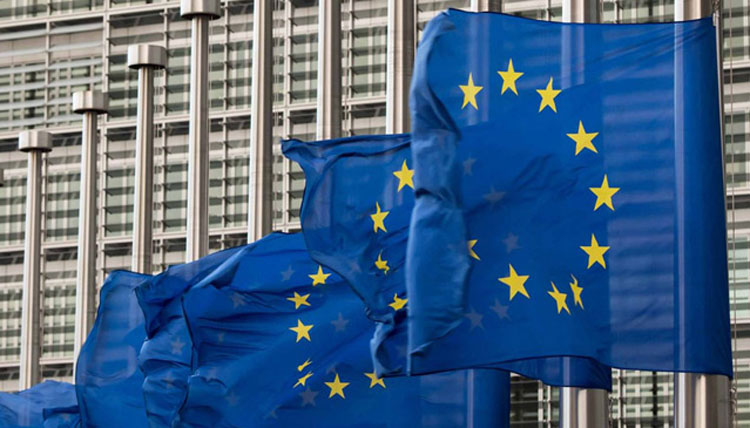The Diplomat
The countries of the European Union yesterday asked Spain for an opinion from the Council’s legal services and for more time to study the economic and political impact of recognising Catalan, Galician and Basque as official languages of the EU.
This position undermines the chances of an agreement next Tuesday when the ministers will discuss it in Brussels,
In a debate at ambassadorial level to prepare for Tuesday’s meeting, a large majority of countries expressed their support for multilingualism as a bridge to connect with citizens and have shown understanding for Spain’s interests, but have also raised many “doubts” regarding the impact of the measure both on the functioning of the EU and on EU coffers, according to Europa Press, according to various European sources.
The acting government of Pedro Sánchez, which holds the rotating presidency of the EU Council, put on the agenda of the European ministers on Tuesday an exchange of opinions to modify the regulation on official languages, with the intention of submitting the matter to the bloc’s vote on the same day.
However, several diplomats consulted point out that no one shares the “sense of urgency” that Spain is conveying to its partners, because the other capitals consider it premature to take any kind of decision if they have not examined in depth issues on which the government has not yet presented details, for example, what the estimated cost of adding these three co-official languages to the 24 already recognised in the EU would be, or how it plans to cover the number of translators and interpreters that would be necessary.
Also holding back the options for agreement is the fear among several delegations regarding the legal framework of the Treaties, although Spain defends the fact that the official status of these languages is recognised by its Constitution and is proposing their introduction in the Congress of Deputies; as well as the possible ‘domino effect’ that could be generated in other member states if the door were opened to regional languages.
The European partners are seeking legal endorsement from the Council and detailed impact assessments on the financial and administrative aspects if the regulation were to be changed, making a decision on Tuesday almost impossible.
These are documents that take time to prepare and several delegations made it clear that they want all of this to be examined and discussed “in detail at a technical level”, i.e. in working groups for longer-term thinking, and that they consider that “it is too early to make a decision”.
Undecided countries
Last Wednesday, Sweden was the first government to be publicly undecided, calling for “further examination of the legal and financial consequences of the proposal”, and yesterday Finland warned that the use of Catalan, Basque and Galician in the EU could slow down decision-making at EU level and delay the entry into force of future regulations.
For countries such as Belgium and the Netherlands, it is difficult to make a decision without impact assessments or details on how to ‘articulate’ the entry of three new languages and a reflection on how this will affect the functioning of the European Union.
Meanwhile, for other countries such as France, where the recognition of regional languages is a sensitive issue, reservations go beyond the technical elements. So far, no member state has taken a position against the Spanish proposal and some have been receptive from the outset, but the decision requires unanimous support and several are calling for the process to be studied more cautiously.
Moreover, Spain is not the only country with minority languages on its territory, and other delegations are concerned that opening this debate could generate a pull effect that could spark similar demands in other regions, explains the senior official from one member state.
In any case, the debate at ministerial level will take place on Tuesday in Brussels at a meeting attended by the Spanish Foreign Affairs Minister, José Manuel Albares, which is unusual because it is the Secretary of State for the EU, Pascual Navarro, who usually represents Spain in the General Affairs Council.
In this case, both will be present, Navarro to moderate the meeting from the position of the rotating presidency of the European Union and Albares to explain the proposal and defend it to his partners. The exchange of opinions will be taken for granted, while the vote, which is also on the agenda, will depend on the outcome of the meeting.





